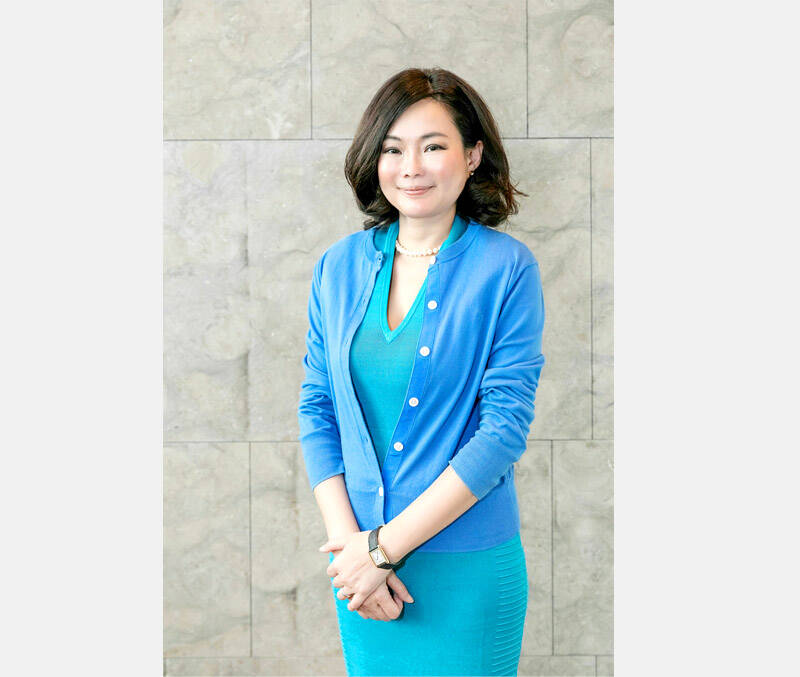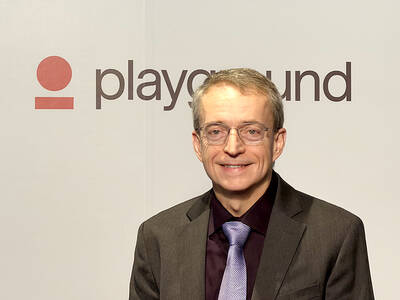Amid heightened global economic uncertainty and rising geopolitical risks, global supply chains and trade patterns are undergoing long-term structural shifts. To help mid-sized corporates navigate these changes, Citi Commercial Bank Taiwan recently hosted two client forums, bringing together Citi experts and cross-border trade specialists to share the latest insights and practical strategies. The events drew nearly 200 corporate representatives and were met with strong engagement.
Adrienne Lui, Citi Taiwan Economist, noted that despite elevated global uncertainties, Taiwan’s strong competitiveness in the AI and semiconductor supply chains positions its corporates well to adapt to shifting trade dynamics and evolving global supply chain structures. She emphasized that regardless of future geopolitical developments, markets such as ASEAN, Mexico, and the EU remain key destinations for Taiwanese companies and reposition their international footprint — due to cost advantages, and regional trade frameworks.
Supported by robust demand for AI and emerging technologies, Taiwan’s exports to ASEAN and the US reached new monthly highs. According to statistics, in April, Taiwan’s exports to ASEAN totaled US$10.46 billion, a 60.2 percent year-on-year increase. Notably, exports to Malaysia surged nearly 116 percent between January and April, making Malaysia Taiwan’s third-largest export market after China/Hong Kong and the US — a shift largely attributed to supply chain realignment and production adjustments. In addition, in February, Taiwan’s exports to the US exceeded those to China for the first time.

Photo courtesy of Citi Taiwan
The Citi Commercial Bank Taiwan forums featured expert insights from Adrienne Lui and Catherine Simmons, head of Government Affairs for Japan, Australia, North Asia, and South Asia, who provided in-depth analysis on global economic trends and geopolitical developments. Citi’s cross-border solutions team also shared insights on how the bank’s services can help mid-sized corporates navigate uncertainty and turn emerging challenges into opportunities.
“In today’s highly uncertain market environment and rapidly evolving investment landscape, Citi provides clients with timely market insights and geopolitical perspectives to support strategic decision-making and comprehensive financial solutions for cross-border investment and operational needs. As a global bank, Citi is committed to helping our clients adapt their business models and strategies to fast-changing geopolitical and trade dynamics,” said Michelle Yu, head of Citi Commercial Bank Taiwan.
Lui mentioned the increasing volatility in the global landscape and the pressures arising from shifting capital flows, which are driving corporates to accelerate supply chain restructuring. She further highlighted ASEAN’s advantages — including regional trade agreements and market potential — positioning it as the most attractive destination for “China+1” and “China+N” supply chain strategies among international and Taiwanese corporates. She remains positive on Taiwan’s economic outlook, supported by AI-driven industrial upgrades and solid GDP growth momentum. Taiwan’s competitiveness in AI and semiconductor supply chains provides a strong foundation for navigating trade negotiations and global supply chain adjustments.
Lui emphasized that ASEAN, the USMCA, and the EU markets remain key priorities in Taiwanese companies’ global strategies. Beyond these regional frameworks, strengthening trade cooperation with other markets, accelerating de-risking efforts, and pursuing diversified market strategies are necessary considerations for Taiwanese companies seeking to further mitigate risk, enhance competitiveness, and adapt to the evolving global trade system.
As geopolitical tensions and evolving economic policies create new and uncharted territory for countries and companies, Citi’s global network is a competitive advantage, and our product depth in managing risk and hedging in global markets is unmatched. Citi has been navigating all types of market environments for our clients for more than 200 years and have built a strategy based on a diversified business mix. With a physical presence in more than 90 markets, and a network serving clients in more than 180 countries and jurisdictions, we are uniquely positioned to support our cross-border clients who are at the heart of our strategy and who will need our support as they adapt to this new world order.

JITTERS: Nexperia has a 20 percent market share for chips powering simpler features such as window controls, and changing supply chains could take years European carmakers are looking into ways to scratch components made with parts from China, spooked by deepening geopolitical spats playing out through chipmaker Nexperia BV and Beijing’s export controls on rare earths. To protect operations from trade ructions, several automakers are pushing major suppliers to find permanent alternatives to Chinese semiconductors, people familiar with the matter said. The industry is considering broader changes to its supply chain to adapt to shifting geopolitics, Europe’s main suppliers lobby CLEPA head Matthias Zink said. “We had some indications already — questions like: ‘How can you supply me without this dependency on China?’” Zink, who also

The number of Taiwanese working in the US rose to a record high of 137,000 last year, driven largely by Taiwan Semiconductor Manufacturing Co’s (TSMC, 台積電) rapid overseas expansion, according to government data released yesterday. A total of 666,000 Taiwanese nationals were employed abroad last year, an increase of 45,000 from 2023 and the highest level since the COVID-19 pandemic, data from the Directorate-General of Budget, Accounting and Statistics (DGBAS) showed. Overseas employment had steadily increased between 2009 and 2019, peaking at 739,000, before plunging to 319,000 in 2021 amid US-China trade tensions, global supply chain shifts, reshoring by Taiwanese companies and

Taiwan Semiconductor Manufacturing Co (TSMC, 台積電) received about NT$147 billion (US$4.71 billion) in subsidies from the US, Japanese, German and Chinese governments over the past two years for its global expansion. Financial data compiled by the world’s largest contract chipmaker showed the company secured NT$4.77 billion in subsidies from the governments in the third quarter, bringing the total for the first three quarters of the year to about NT$71.9 billion. Along with the NT$75.16 billion in financial aid TSMC received last year, the chipmaker obtained NT$147 billion in subsidies in almost two years, the data showed. The subsidies received by its subsidiaries —

OUTLOOK: Pat Gelsinger said he did not expect the heavy AI infrastructure investments by the major cloud service providers to cause an AI bubble to burst soon Building a resilient energy supply chain is crucial for Taiwan to develop artificial intelligence (AI) technology and grow its economy, former Intel Corp chief executive officer Pat Gelsinger said yesterday. Gelsinger, now a general partner at the US venture capital firm Playground Global LLC, was asked at a news conference in Taipei about his views on Taiwan’s hardware development and growing concern over an AI bubble. “Today, the greatest issue in Taiwan isn’t even in the software or in architecture. It is energy,” Gelsinger said. “You are not in the position to have a resilient energy supply chain, and that,